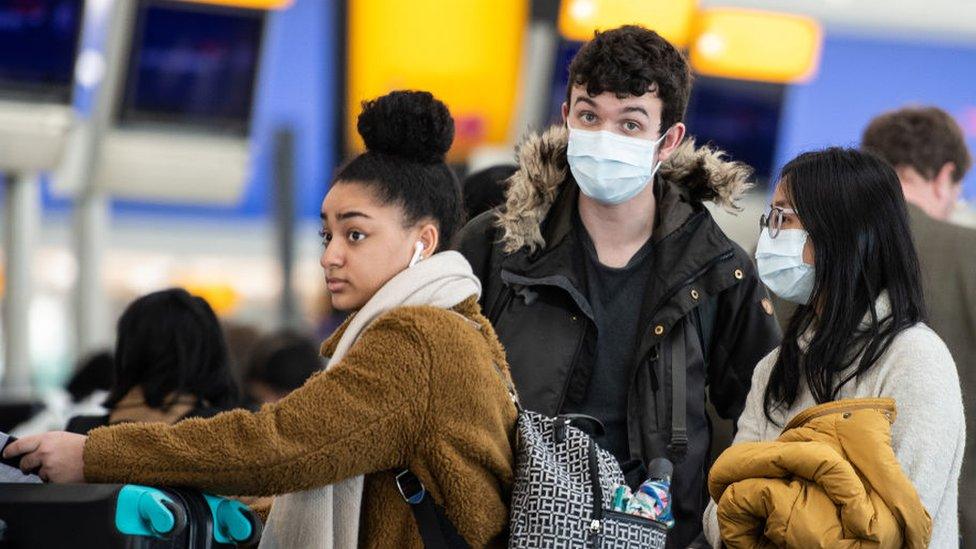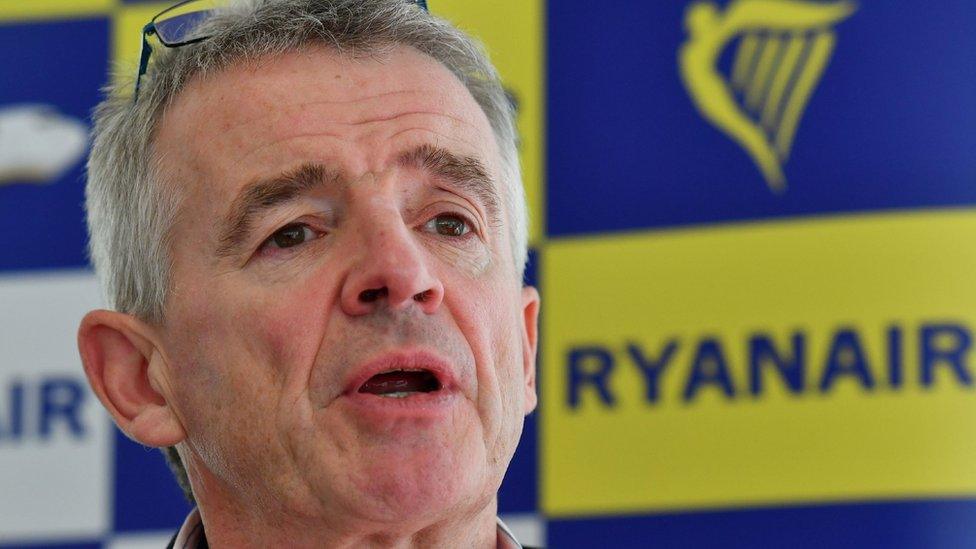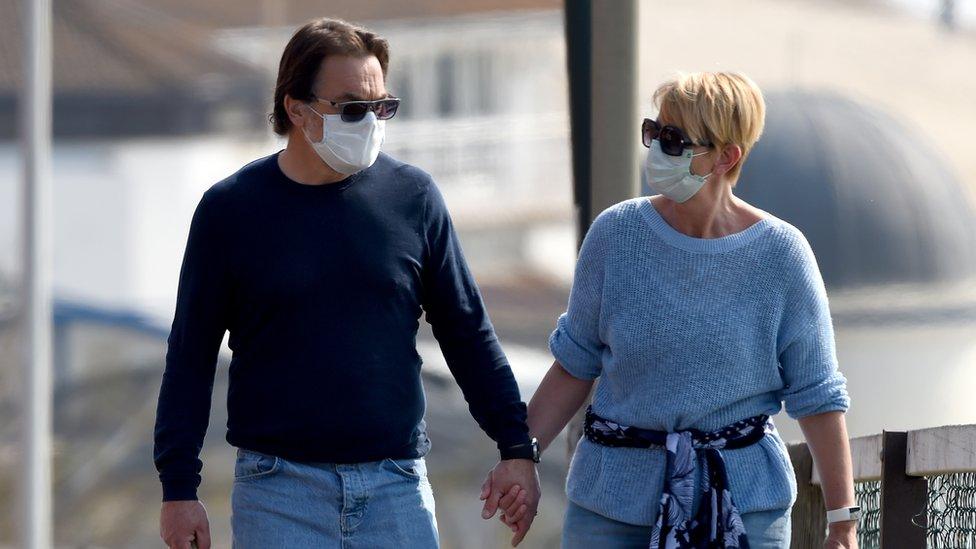Coronavirus: Ryanair boss's face mask claim fact-checked
- Published

Ryanair boss Michael O'Leary has claimed that if everyone wore face masks on planes and public transport, it would ''eliminate the risk of spreading Covid-19 by about 98.5%''.
Mr O'Leary, who wants to restart flights in July, was speaking on BBC Radio 4's Today programme. He called the government's plan to quarantine travellers for 14 days "ineffectual" and "unmanageable".
Mr O'Leary said the 98.5% figure came from a study by the Mater Hospital in Dublin. He was unable to produce it and the airline directed us instead to a tweet from the hospital.
Prof Paul Hunter, who has conducted a review into mask studies, told us he could ''find no valid data to support the claims''.
The evidence?
Ryanair directed us to a tweet showing a graphic suggesting surgical masks could cut the risk of transmission to 1.5%.
It was tweeted on 9 May by the UCD Centre for Precision Surgery at Mater Hospital and was liked more than 500 times.
Similar versions of this image have been circulating on social media in various countries for about a month.
The next day, the department posted a reply to the tweet saying: "The cartoon is, of course, a gross oversimplification."
Allow X content?
This article contains content provided by X. We ask for your permission before anything is loaded, as they may be using cookies and other technologies. You may want to read X’s cookie policy, external and privacy policy, external before accepting. To view this content choose ‘accept and continue’.
It said the figures were based on "approximates" of infection rates and "theoretical projections" about droplet transmissions, "assuming certain conditions".
We have asked Mater Hospital whether it still stands by the figure but it has not given any clarification.
Prof Hunter dismissed the 98.5% figure, adding that his ''best guess'' would be that wearing face masks would cut transmission by 10% to 15%.
As part of his work at UEA Norwich Medical School, he has helped to conduct a systematic review of studies into the effectiveness of mask-wearing in preventing the spread of coronavirus.
He said there were many factors at play, including the type of mask worn - with some more effective than others at trapping particles. The way the mask is worn is also crucial: ''If you have a loose-fitting mask and you cough, then it will just blast out the side.''

Ryanair boss Michael O'Leary wants to restart flights in July
''The current government advice on this - which I think is quite appropriate - is that ideally you should stay at home. If you have to go out into these environments, a face covering will provide a degree of protection but they fall short of this level of protection (98.5%) and to think otherwise would put people at greater danger,'' he adds.
Dr Michael Head, senior research fellow in Global Health, University of Southampton, says: "The number quoted by Michael O'Leary is not reflective of the evidence base. There is very little evidence indicating significant benefits of widespread community use of facemasks."
On 14 May, Ryanair also posted a 20 second clip on its YouTube channel, external of immunologist Luke O'Neill from Trinity College Dublin, saying studies had shown that "95% of the viral load [the amount of virus particles] would be trapped by the mask".
''If we all wear cotton masks on planes that will decrease transmission dramatically,'' Prof O'Neill told the BBC, citing a study looking at oral droplets, external.
But he pointed out that an infected person could still transmit the coronavirus when they arrived at their destination.
''I don't see masks as a way to replace quarantine - if someone is infected they could arrive and spread infection.''
What's the official advice?

The WHO says not enough is known yet about whether healthy people should use masks in the wider community
There is not enough evidence either way to determine whether healthy people should use masks in the wider community, according to current guidance, external from the World Health Organization (WHO).
It recommends medical masks are worn by people who have the virus and are sick, and by those caring for them.
Face coverings which go over the nose and mouth are now being advised for people in Scotland and England while in certain enclosed spaces, including on public transport and anywhere they can't practise social distancing.
It's thought that homemade cloth face coverings can help reduce the risk of transmission in some circumstances - they might help stop the spread of coronavirus by people who are contagious but have no symptoms.
But people are still being told to only use shared transport when the journey is essential and cannot be made in another way.
Some major US airlines, including United, Delta and American Airlines now require their passengers to wear masks or face coverings.

A SIMPLE GUIDE: How do I protect myself?
AVOIDING CONTACT: The rules on self-isolation and exercise
WHAT WE DON'T KNOW How to understand the death toll
TESTING: Can I get tested for coronavirus?
LOOK-UP TOOL: Check cases in your area



